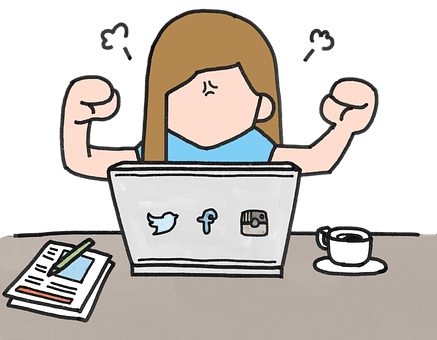How to be angry | Psyche Guides
Curated from: psyche.co
Ideas, facts & insights covering these topics:
7 ideas
·5.97K reads
17
Explore the World's Best Ideas
Join today and uncover 100+ curated journeys from 50+ topics. Unlock access to our mobile app with extensive features.
Explaining Anger
Anger is characterised by an intense feeling of displeasure, ranging from frustration to rage. It includes a physiological response like increased heart rate and muscle tension, thoughts such as blame or revenge, and predictable behaviour, such as the desire to lash out.
Many people don't act out how they feel. They might want to yell or scream, but instead, they might pout, cry, or breathe deeply.
185
1.36K reads
Interacting Factors of Anger
Anger comes from three interacting factors:
- A provocation or trigger. It's what happened right before you got angry (being cut off in traffic, or insulted by someone, for example)
- The person's interpretation of the provocation. When you blow things out of proportion, overgeneralise, or label people in inflammatory ways, you become angrier than you otherwise would
- Their mood at the time, such as tired, stressed, hungry, already angry.
187
934 reads
Understand Your Anger
- Is your anger justified? Consider if you've really been wronged or treated unfairly, and what the real consequences of that are.
- What does your anger tell you about the situation? When you think your anger is justified, what is your anger communicating to you about the circumstances? Your anger may come from the stress of the coming day.
- What does your anger tell you about yourself? Anger can tell you a lot about your values and needs. It can give you a better understanding of what to do next.
194
807 reads
Preventing Anger
When you understand your anger, you can intervene in any of the three stages (provocation, interpretation, mood).
- You can avoid provocations when you decide it's best to do so. You can ignore or hide irritating political Facebook posts.
- When you can't avoid a provocation, you can evaluate your thoughts and ask if they're reasonable or accurate.
- You can take steps to avoid getting into pre-anger states, such as feeling tired, hungry, or rushed.
184
771 reads
Traditional Anger-Management Approaches
Anger management strategies include relaxation, such as deep breathing, muscle relaxation, or meditation.
When you're angry, relaxation approaches work to decrease unwanted emotional and physiological arousal. Suggestions such as punching a pillow is a bad idea since it doesn't reduce anger but increase the likelihood of later aggression.
166
875 reads
Use Your Anger Productively
Anger is a fuel that can energise you to solve problems. But if it gets out of control, you can blow up and be a danger to yourself or those around you.
One way to productively use your anger might include addressing the small issues in your life that lead to frequent frustrations, such as a leaky tap. You can also use your anger to assert yourself by having a meaningful but difficult conversation.
168
600 reads
Mood Logs
The most valuable way to understand, manage and use your anger is to keep a mood log.
Using a mood log for a week or two will help you identify the relationship between your feelings, thoughts, and situations. It will give insight into how you tend to think and behave when you're angry. You might notice that you get angry when your goals are blocked, or you are more prone to thoughts such as blaming. With this knowledge, you can consider whether your anger is productive.
167
631 reads
IDEAS CURATED BY
Nimai Arya's ideas are part of this journey:
Learn more about personaldevelopment with this collection
How to align stakeholders
Best practices in product management leadership
How to create value together
Related collections
Similar ideas
Read & Learn
20x Faster
without
deepstash
with
deepstash
with
deepstash
Personalized microlearning
—
100+ Learning Journeys
—
Access to 200,000+ ideas
—
Access to the mobile app
—
Unlimited idea saving
—
—
Unlimited history
—
—
Unlimited listening to ideas
—
—
Downloading & offline access
—
—
Supercharge your mind with one idea per day
Enter your email and spend 1 minute every day to learn something new.
I agree to receive email updates

